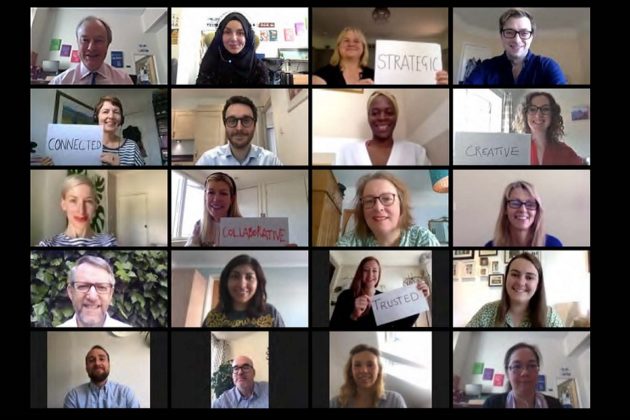Leading the GCS Way
Over recent years, the Government Communication Service (GCS) has invested hugely into recruiting and developing communications professionals while constantly challenging ourselves to stay ahead of the curve as the world of communications evolves.
However, it’s not enough to be competent in what we do, we need to focus more than ever on how we go about it.
I know that many of us involved in the COVID-19 response are working under huge pressure with long days and many quick high-stake decisions. This, combined with uncertain personal circumstances for many and indeed an unknown future for us all, it can become all too easy to focus at the task at hand and not the nearer impact we’re having.
As leaders it’s incumbent on us to set the right tone for how we approach things – especially in difficult circumstances. Think of being on a bumpy flight. If you look at the air stewards and they seem relaxed, you feel reassured. Imagine if they looked panicked? Or worse still the Captain!
To try and capture this, we have developed a new strengths framework for Government communicators, nestled comfortably within the Civil Service leadership attributes and values, which we all continue to live up to.

We’ve highlighted five behaviours / strengths that GCS members and leaders across the Civil Service have told us are particularly applicable to communications professionals at all levels.
- Strategic thinking is always at the heart of good communications. Rather than being reactive, it’s critical we consider the big picture, the social and political context, and remain flexible and responsive to a rapidly changing environment.
- We need to be connected and perceptive to our audiences needs, truly listening and understanding their needs and priorities from a range of diverse backgrounds.
- We also need to be creative to find new, innovative and effective ways to engage and influence our audiences based on all we have learnt about them.
- And we need to be collaborative, breaking down silos and working in partnership across government, as well as with our partners, taking collective responsibility and having clear accountability.
- We do all of this because ultimately, we want to be trusted by the public, our partners, Ministers and just as importantly each other. When we all work together, we are at our strongest and most effective.
Each one of us approaches leadership in our own unique way, whether we’re leading ourselves, our teams or indeed other leaders. One thing that applies consistently is that leadership today is far more about influence, relationships and kindness than it’s ever been.
Focusing on how we do things, as well as what we do, can only make us better as a profession, working together to deliver on the Government’s priorities in the most effective way whatever challenges may face us now and in the future.
